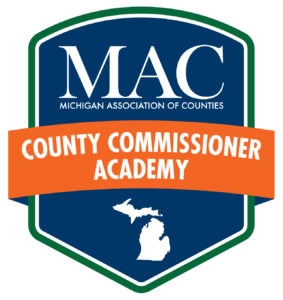State releases new health orders on public gatherings, mask use
 With COVID-19 hospitalizations and deaths rising, the Michigan Department of Health and Human Services (MDHHS) released new, more restrictive health orders on Thursday night on public activities and mask usage.
With COVID-19 hospitalizations and deaths rising, the Michigan Department of Health and Human Services (MDHHS) released new, more restrictive health orders on Thursday night on public activities and mask usage.
Among the key changes in the new orders:
- Restaurants and bars must seat no more than six people at a table
- All dine-in establishments must keep customers’ names and phone numbers for contact-tracing purposes
- Face masks are required for everyone at indoor gatherings
- Indoor gatherings are capped at 50 people in venues with no fixed seating
- Outdoor gatherings at residences are limited to 100 people
- Indoor gatherings at residences are limited to 10 people
The department also ordered that the region around Traverse City has been pulled back to Phase 4 of the state’s Safe Start system, bringing it in line with restrictions in the rest of Michigan.
The orders are effective immediately, except for the contact tracing provision on eateries, which begins Nov. 2.
- NEW: MDHHS Health Order on gatherings and face masks (10/29)
- NEW: MDHHS Fact Sheet on gatherings order (10/29)
- NEW: MDHHS Guidance on gatherings order (10/29)
For the latest information on COVID-19 response, visit MAC’s Resources Page.
Final state approval given on Indigency Standard 5
 As expected, the state Department of Licensing and Regulatory affairs (LARA) has approved the Michigan Indigent Defense Commission’s Standard 5, which requires independence of the judiciary (“to ensure the court is free from political and budgetary influence when making indigency determinations”) pursuant to the MIDC Act. The full final standard can be found here.
As expected, the state Department of Licensing and Regulatory affairs (LARA) has approved the Michigan Indigent Defense Commission’s Standard 5, which requires independence of the judiciary (“to ensure the court is free from political and budgetary influence when making indigency determinations”) pursuant to the MIDC Act. The full final standard can be found here.
The MIDC notified funding units of the following:
“As required by MCL 780.993(3), indigent criminal defense systems must submit a plan for compliance with minimum Standard 5 “no later than 180 days after” approval by the department. A plan for compliance with Standard 5 will be due to the MIDC by April 27, 2021. Submission of a plan for compliance with Standard 5 will correspond with the annual compliance planning cycle for all approved standards. Your Regional Managers will be in touch to support planning efforts. Please check our website regularly for updates and materials related to compliance planning.”
MAC members have expressed concern that the state will not continue to fully fund current and future standards. MAC expects compliance with Standard 5 to further add to costs and will continue our efforts to fully fund all approved standards. Additionally, the law clearly outlines that a county’s duty of compliance with approved standards is contingent upon receipt of a grant in the amount sufficient to cover the approved standards within the system’s plan.
For questions, contact Meghann Keit at keit@micounties.org.
Treasury releases FY21 actuarial assumptions
 The Michigan Department of Treasury is required, under PA 202 of 2007, to establish uniform actuarial assumptions for retirement systems on investment returns, mortality rates and health care inflation each year. Local units of government with a defined benefit system are required to use these assumptions in their annual report to the department. These assumptions are different that the assumptions used in your local audited financial statements. The assumptions issued by Treasury are meant to serve as a comparison of systems across local government for public and government evaluation purposes, and not as the measurement to determine if the local unit is in a funded or unfunded status.
The Michigan Department of Treasury is required, under PA 202 of 2007, to establish uniform actuarial assumptions for retirement systems on investment returns, mortality rates and health care inflation each year. Local units of government with a defined benefit system are required to use these assumptions in their annual report to the department. These assumptions are different that the assumptions used in your local audited financial statements. The assumptions issued by Treasury are meant to serve as a comparison of systems across local government for public and government evaluation purposes, and not as the measurement to determine if the local unit is in a funded or unfunded status.
A local government funded status is determined by their own assumptions in their local audited financial statement.
For more information, contact Deena Bosworth at Bosworth@micounties.org.
Finance report: Use counties’ regional position to leverage reforms
 Michigan should give counties the option to create a new tax and serve as a hub for delivery of more local services, says a new report.
Michigan should give counties the option to create a new tax and serve as a hub for delivery of more local services, says a new report.
“Towards Fiscally Healthy Michigan Local Governments,” an analysis by the Lincoln Institute of Land Policy, details what most county leaders already know – that the state of Michigan has long starved counties and other local units of necessary revenue and local public services are suffering as a consequence, to the detriment of Michigan.
The analysis’ authors argue this is not sustainable and that the best response is to rely in part on counties’ unique position to deliver services and collect revenue on a regional basis.
“(T)he state suffers from government fragmentation, which results in inefficiencies: with every county, city, village, township, and special district responsible for providing certain services, duplications among overlying governments may arise. Cost-saving measures implemented by many municipalities can only go so far and opportunities for collaboration may be overlooked,” the authors explain.
“One of two approaches should follow: (1) reorganize the local government’s service delivery model to allow counties to provide more services; or (2) create a system for the county to distribute new revenues to all local units of government within the county, with the county retaining a small portion of the revenues to cover administrative costs and to help pay for other county-provided services.”
“The report has several interesting suggestions and it is valuable in that it will help continue to raise the local funding crisis to the attention of state lawmakers,” said Deena Bosworth, MAC’s director of governmental affairs.
Virtual forum to highlight wind energy planning and siting issues
 The National Renewable Energy Laboratory (NREL) is hosting a Wind Energy Planning & Siting Information Workshop on Nov. 17 and Nov. 19, noon to 2:30 p.m. Eastern time, for local officials and planners to share experiences while learning more about wind energy development in communities around the country.
The National Renewable Energy Laboratory (NREL) is hosting a Wind Energy Planning & Siting Information Workshop on Nov. 17 and Nov. 19, noon to 2:30 p.m. Eastern time, for local officials and planners to share experiences while learning more about wind energy development in communities around the country.
What to expect:
- Participants will share first-hand experiences and discuss common practices pertaining to wind energy development in their communities.
- NREL technical experts and national and local experts will facilitate a discussion identifying potential pathways to reduce uncertainty and inform communities about wind energy impacts.
To attend, please RSVP to Chloe Constant (chloe.constant@nrel.gov) by Nov. 4.
 Staff picks
Staff picks
- Government consolidation: A historically unpopular solution to local fiscal strain (Citizens Research Council of Michigan
- In national debate over policing changes, policymakers can look to corrections reforms for guidance (Pew Trusts)
- States craft remote work policies that work (National Conference of State Legislatures)
- 100-year-old voter shares advice ahead of election, names favorite president in her lifetime (USA Today)
House GOP releases county-oriented COVID plan, bill
 A new plan and legislation from the House Republican Caucus would require counties to adhere to state health rules on COVID-19, unless they could meet five criteria to adopt less restrictive rules.
A new plan and legislation from the House Republican Caucus would require counties to adhere to state health rules on COVID-19, unless they could meet five criteria to adopt less restrictive rules.
The plan incorporated in House Bill 6314, by Rep. Ben Frederick (R-Shiawassee), says counties must follow Michigan Department of Health and Human Services (MDHHS) emergency orders, unless certain standards are met. If all five are met, the county health officer may issue directives that are equal to or less restrictive than the state order.
The criteria that must be met include, within a 14-day period:
- Confirmed cases at or below 55 per 1 million
- Percentage of positive tests below 5%
- Hospitalization rates have not increased 25%
Additionally, health facilities in the served areas must have a “surge capacity of at least 20 percent in admissions or patient transfers,” and must also have at least a 14-day supply of PPE available. The service area must be able to conduct 15 tests per 10,000 residents per day and receive results within three days.
Many counties participate in multi-county health districts. For those who do, the calculations in the criteria mentioned above would have to be met by each county individually.
Under the bill, if a county no longer meets two or more of the requirements during a seven-day period, the county health officer order is no longer valid, and the county reverts back to the emergency order issued by MDHHS. The county health officer can issue subsequent orders once the county meets the criteria again previously mentioned.
MAC has not taken a position yet on this bill but will be reviewing it with our internal committees in upcoming days. Additionally, MAC is seeking input and guidance from local public health experts.
For questions, contact Meghann Keit at keit@micounties.org.
Commission sets ‘Indigency Standard’ at October session
 The Michigan Indigent Defense Commission revised the “Indigency Standard” this week at a meeting after receiving public comment in September. The final standard sets indigency, partial indigency and contribution standards for local systems, as statutorily required. The full text can be found here.
The Michigan Indigent Defense Commission revised the “Indigency Standard” this week at a meeting after receiving public comment in September. The final standard sets indigency, partial indigency and contribution standards for local systems, as statutorily required. The full text can be found here.
The standard now heads to the Department of Licensing and Regulatory Affairs, which has final approval of all MIDC-set standards.
The commission also released its October 2020 update, which includes important information and resources for fourth quarter reporting.
Comments can be submitted to LARA-MIDC-info@michigan.gov. All comments will be posted on the MIDC’s website.
The MIDC is also anticipating approval of Standard 5 in upcoming months. Standard 5 sets standards for an indigent criminal defense services to be independent of the judiciary. If approved, the next round of county plan and cost analyses will include this new standard.
The Legislature and governor funded MIDC grants at $117.5 million in FY21. It is expected that Standard 5 will create additional costs in the upcoming fiscal year. MAC stands ready to continue to advocate for full funding by the state, as constitutionally required, as more standards are approved.
For more information on this issue, contact Meghann Keit at keit@micounties.org.
New COVID requirements for nursing homes are now law
 Several requirements pertaining to the state’s COVID-19 nursing home policy are now law after Gov. Gretchen Whitmer signed Senate Bill 1094 this week.
Several requirements pertaining to the state’s COVID-19 nursing home policy are now law after Gov. Gretchen Whitmer signed Senate Bill 1094 this week.
The bill, by Sen. Pete Lucido (R-Macomb), also requires the Michigan Department of Health and Human Services (MDHHS) to adopt statewide policy by Nov. 15.
Additionally, the department must create a process for the creation of Care and Recovery Centers (CRCs) within nursing homes for those residents who test positive for COVID, similar to what the state moved toward after the nursing home task force recommendations were released.
Under the law, an individual cannot be admitted to a nursing home if they are positive for COVID-19, receiving treatment at a hospital and have less than 72 hours in the isolation period. Starting Nov. 15, the individual cannot be admitted to a nursing home if the person tests positive for COVID-19, but there are certain exemptions.
For questions, contact Meghann Keit at keit@micounties.org.
MDHHS expands Behavioral and Opioid Health Home initiatives
 The Michigan Department of Health and Human Services (MDHHS) says it will expand the Behavioral Health Home (BHH) and Opioid Health Home (OHH) initiatives “in select Michigan counties to provide intensive care management and care coordination services for Medicaid beneficiaries with a serious mental illness (SMI) or serious emotional disturbance (SED), and an opioid use disorder (OUD), respectively.
The Michigan Department of Health and Human Services (MDHHS) says it will expand the Behavioral Health Home (BHH) and Opioid Health Home (OHH) initiatives “in select Michigan counties to provide intensive care management and care coordination services for Medicaid beneficiaries with a serious mental illness (SMI) or serious emotional disturbance (SED), and an opioid use disorder (OUD), respectively.
“The Centers for Medicare & Medicaid Services (CMS) recently approved Michigan’s State Plan Amendments (SPAs) to expand its Behavioral and Opioid Health Home initiatives. The expanded SPAs will allow thousands of Medicaid beneficiaries meeting the eligibility criteria to receive BHH or OHH services in the following Prepaid Inpatient Health Plan (PIHP) regions:
BHH
- PIHP Region 1 (counties in the Upper Peninsula)
- PIHP Region 2 (21 northern-most counties of the Lower Peninsula)
- PIHP Region 8 (Oakland County)
OHH
- PIHP Region 1 (counties in the Upper Peninsula)
- PIHP Region 2 (21 northern-most counties of the Lower Peninsula)
- PIHP Region 4 (specifically Calhoun and Kalamazoo Counties)
- PIHP Region 9 (Macomb County)
“In Michigan, half of Medicaid beneficiaries have an untreated mental illness, and more than two-thirds have an untreated substance use disorder. Health Homes are a proven model to increase access to coordinated and integrated care, which is especially important during the COVID-19 pandemic.”
For more information, visit Michigan.gov/IHH. For BHH-specific information, including eligibility and available resources, visit Michigan.gov/BHH; for OHH-specific information, including eligibility and available resources, visit Michigan.gov/OHH.
 Staff picks
Staff picks
- Information on flu shots in Michigan (University of Michigan Medicine)
- Michigan FY21 Revenue Sharing Estimates for Counties (Michigan Senate Fiscal Agency)
- CDC expands definition of ‘close contacts,’ after study suggests COVID_19 can be passed in brief interactions (Statnews.com)
- These are the words that were added to the dictionary the year you were born (Thrillist.com)
Registration opens for 2020 New Commissioner Schools
 To aid newly elected commissioners, and promote continuing education among veteran ones, MAC again is partnering with MSU Extension (MSUE) for the biennial New Commissioner Schools.
To aid newly elected commissioners, and promote continuing education among veteran ones, MAC again is partnering with MSU Extension (MSUE) for the biennial New Commissioner Schools.
Registration is now open for this year’s series, which will be the first all-digital series in the event’s history.
“The value of these sessions for commissioners, new or not, is tremendous,” said Stephan Currie, MAC executive director. “We work closely with MSUE on content to ensure its direct application to the challenges and opportunities that commissioners encounter every day.”
With the digital format, sessions will open Nov. 12 and not conclude until mid-December, allowing attendees a great deal of flexibility on dates and times. In addition, registrants will have 24/7 access to previously released sessions – what MSUE calls “self-paced, asynchronous learning.”
MAC’s Currie will offer taped remarks to registrants, and MAC is sponsoring the segment on the Open Meetings Act, a particularly salient issue right now, led by Matt Nordfjord of the firm of Cohl, Stoker and Toskey.
 Full details on the schedule of sessions can be found here.
Full details on the schedule of sessions can be found here.
Registration for the event, which carries a $95 fee, starts here.
Also, commissioners and commissioners-elect earn credits in MAC’s County Commissioner Academy for their participation in the New Commissioner Schools.
CCA operates on a two-year sequence, starting after an election. Participants earn continuing education “hours” by attending designated events and workshops. “Certification” is offered at two different levels: “Certified” is reached at 10 hours over a two-year cycle, while “Advanced” is reached with 20 hours over a four-year period. “Hours” will not be limited to MAC events. Commissioners can earn via attendance at MSUE-sponsored events or even sessions hosted by the Treasury Department or elsewhere.
A New Commissioner School equates to 5 credit hours, for example.
“We strongly encourage all members to consider these sessions,” Currie said, “and we look forward to seeing everyone online.”
Changes to Open Meetings Act allow for expanded remote sessions
 Changes to the Open Meetings Act to allow county boards, under any circumstance, to continue to conduct virtual sessions through the end of the year are the governor’s signature away from being law, a signature that is expected late Friday afternoon
Changes to the Open Meetings Act to allow county boards, under any circumstance, to continue to conduct virtual sessions through the end of the year are the governor’s signature away from being law, a signature that is expected late Friday afternoon
Senate Bill 1108 also allows for retroactive authorization for virtual sessions dating back to March 18, 2020, to ensure the validity of board actions taken during the pandemic. This blanket authorization expires on Jan. 1, 2021, but the bill will still allow for virtual participation in meetings in such circumstances as a commissioner’s medical condition and when the county or the state is operating in a state of emergency.
Legislation cleared the Senate and House earlier this week by bipartisan majorities. (MAC thanks members who participated in our advocacy campaign to the House this week for this result. Your voices make a difference in Lansing.) The bill was part of a huge wave of legislation passed this week that was sent to Gov. Gretchen Whitmer for her signature Friday.
The legislation allows county boards to meet electronically, in whole or in part, as follows:
March 18, 2020-Jan. 1, 2021, for “any circumstance, including but not limited to,” military leave, state or local emergency declaration, or for a medical condition”
Jan. 1, 2021-Dec. 31, 2021, for “only those circumstances requiring accommodation of members absent due to military duty, a medical condition, or a statewide or local state of emergency”
After Dec 31, 2021, only for reason of military duty
If a member of the public body is participating remotely due to military duty or a medical condition, the accommodation only applies to that individual and the other members must by physically present at the meeting.
Each member of the public body that is meeting remotely must announce the county, city, township or village and state from which the member is attending remotely, and it must be included in the meeting minutes.
Quick passage of this legislation was a top priority for MAC in the wake of the litigation against the 1945 law that the governor had used for her Executive Orders during the pandemic.
For more information on OMA options, view the latest episode of MAC’s Podcast 83, sponsored by DTE, which featured Matt Nordfjord of the firm of Cohl, Stoker and Toskey answering questions on the law.
Legislature adopts COVID care immunity, policy bills
 During a Tuesday session that stretched into Wednesday morning, the Legislature revised laws to codify various orders that Gov. Gretchen Whitmer had made during the pandemic, but which had been nullified when the Michigan Supreme Court said the 1945 law underpinning the orders was unconstitutional. Among actions taken was on immunity for nursing facilities, as well as implementation of the COVID-19 nursing home task force recommendations.
During a Tuesday session that stretched into Wednesday morning, the Legislature revised laws to codify various orders that Gov. Gretchen Whitmer had made during the pandemic, but which had been nullified when the Michigan Supreme Court said the 1945 law underpinning the orders was unconstitutional. Among actions taken was on immunity for nursing facilities, as well as implementation of the COVID-19 nursing home task force recommendations.
House Bill 6159, by Rep. Roger Hauck (R-Isabella), would provide immunity protections for medical care facilities during COVID-19 response efforts from March 29 through July 14, 2020. The final text of this bill can be found here. The bill now heads to the governor for review.
Senate Bill 1094, by Sen. Peter Lucido (R-Macomb), was also passed by both chambers. It adds many requirements for the state Department of Health and Human Services (MDHHS), including adoption of policy as recommended by the nursing home COVID-19 Task Force and to identify labs that will process COVID tests from nursing homes by Nov. 15.
MDHHS must create a process for the creation of care and recovery centers (CRCs) within nursing homes for those residents who test positive for COVID “who have not met the criteria for the discontinuation of transmission-based precautions from the federal Centers for Disease Control and Prevention.”
A home wishing to operate a CRC would apply to DHHS and must adhere to several requirements. An individual cannot be admitted to a nursing home if they are positive for COVID-19, receiving treatment at a hospital and have fewer than 72 hours in the isolation period. Starting Nov. 15, the individual cannot be admitted to a nursing home if the person tests positive for COVID-19 unless they have since recovered, the nursing home is a CRC or the nursing home can meet the requirements under (1)(e). A nursing facility can continue to admit and care for a COVID-positive resident, through Dec. 31, 2020, under certain exemptions.
The full text of the bill, which is now before the governor, can be found here.
Lastly, House Bill 6137, by Rep. Leslie Love (D-Wayne) was passed by the House regarding reporting requirement for MDHHS and nursing home data. The full list requirements can be found in the bill here.
For more information on this issue, contact Meghann Keit at keit@micounties.org.
Jail Task Force-inspired bills advance in Senate
 Legislation that will reduce burdens on county jails and improve the efficiency and effectiveness of the state’s criminal justice system were voted out of the Senate Judiciary and Public Safety Committee this week. MAC supports these reforms.
Legislation that will reduce burdens on county jails and improve the efficiency and effectiveness of the state’s criminal justice system were voted out of the Senate Judiciary and Public Safety Committee this week. MAC supports these reforms.
House Bills 5844 and 5854-57 remove mandatory minimum jail sentences for certain offenses. Removal of such sentences would mean a court could impose any term of imprisonment, up to the statutory maximum specified for an offense. For certain driving while intoxicated offenses, the legislation prohibits a judge from waiving the minimum, unless the offender successfully completes a specialty court program, such as a drug treatment or sobriety court.
Additionally, bills removing driver’s licenses sanctions for non-related driving offenses were also passed by the House. HBs 5846-5852 would eliminate various license suspensions unrelated to dangerous driving, such as failure to appear for court or failing to pay child support.
The Senate committee also voted out SB 1152, by Sen. Erika Geiss (D-Wayne), that requires jails to provide certain accommodations to an incarcerated woman who is pregnant. The bill requires jails to provide pregnancy tests, a holding place for breastmilk, and access to an OB-GYN, nurse midwife, or doula services.
At this time, MAC opposes the Geiss bill due to unknown costs related to some of the previously mentioned services and liability connected to the requirements. See the full fiscal analysis for further cost impact to counties.
MAC’s opposition testimony can be found here.
For questions, contact Meghann Keit at keit@micounties.org.
State again seeks input on five-year Health IT Roadmap for Michigan
 The Michigan Health Information Technology Commission has begun developing a Statewide Five-Year Health IT Roadmap. This Roadmap will be a guide for future planning, investments and governance of health information technology (HIT) and health information exchange (HIE) for the state of Michigan.
The Michigan Health Information Technology Commission has begun developing a Statewide Five-Year Health IT Roadmap. This Roadmap will be a guide for future planning, investments and governance of health information technology (HIT) and health information exchange (HIE) for the state of Michigan.
The next step is to gather input from stakeholders across the health and human services ecosystems in Michigan on current and future HIT and HIE needs, capabilities and gaps. Please ensure your input is included by participating in the survey and sharing your organization’s insights relevant to health information technology and health information exchange.
The appropriate individual(s) in your organization should complete this survey by Nov. 17, 2020. This survey should take no longer than about 20 minutes.
As the COVID-19 pandemic has highlighted, critical HIT and HIE services to support real-time, clinical interventions, care coordination, referrals to social support services, and research is imperative to supporting the health and well-being of the communities we serve. Your candid perspective in response to the survey questions will be very valuable and appreciated.
More information on the Statewide Five-Year Health IT Roadmap and other opportunities to engage in the process can be found here.
 Staff picks
Staff picks
- Tracker for Michigan mail-in ballots (U.S. Elections Project)
- Official handbook on Michigan’s Open Meetings Act (Michigan.gov)
- Michigan public assistance cases & monthly average benefit charts (Senate Fiscal Agency)
- New Mexico county builds tiny homes for its transient population (NACo)
 To aid newly elected commissioners, and promote continuing education among veteran ones, MAC again is partnering with MSU Extension (MSUE) for the biennial New Commissioner Schools.
To aid newly elected commissioners, and promote continuing education among veteran ones, MAC again is partnering with MSU Extension (MSUE) for the biennial New Commissioner Schools.
Registration ends Monday, Nov. 15 for this year’s series, which will be the first all-digital series in the event’s history.
“The value of these sessions for commissioners, new or not, is tremendous,” said Stephan Currie, MAC executive director. “We work closely with MSUE on content to ensure its direct application to the challenges and opportunities that commissioners encounter every day.”
With the digital format, sessions will open Nov. 12 and not conclude until mid-December, allowing attendees a great deal of flexibility on dates and times. In addition, registrants will have 24/7 access to previously released sessions – what MSUE calls “self-paced, asynchronous learning.”
MAC’s Currie will offer taped remarks to registrants, and MAC is sponsoring the segment on the Open Meetings Act, a particularly salient issue right now, led by Matt Nordfjord of the firm of Cohl, Stoker and Toskey.
Full details on the schedule of sessions can be found here.
Registration for the event, which carries a $95 fee, starts here.
 Also, commissioners and commissioners-elect earn credits in MAC’s County Commissioner Academy (CCA) for their participation in the New Commissioner Schools.
Also, commissioners and commissioners-elect earn credits in MAC’s County Commissioner Academy (CCA) for their participation in the New Commissioner Schools.
CCA operates on a two-year sequence, starting after an election. Participants earn continuing education “hours” by attending designated events and workshops. “Certification” is offered at two different levels: “Certified” is reached at 10 hours over a two-year cycle, while “Advanced” is reached with 20 hours over a four-year period. “Hours” will not be limited to MAC events. Commissioners can earn credits via attendance at MSUE-sponsored events or even sessions hosted by the Treasury Department or elsewhere.
A New Commissioner School equates to 5 credit hours, for example.
“We strongly encourage all members to consider these sessions,” Currie said, “and we look forward to seeing everyone online.”
 MAC’s Podcast 83 team will host a special live edition on Wednesday at 3:30 p.m. They will discuss all of the details on how county boards can meet properly and safely now with special guest Matt Nordfjord of the firm of Cohl, Stoker and Toskey in Lansing.
MAC’s Podcast 83 team will host a special live edition on Wednesday at 3:30 p.m. They will discuss all of the details on how county boards can meet properly and safely now with special guest Matt Nordfjord of the firm of Cohl, Stoker and Toskey in Lansing.
With the governor’s Executive Orders, including the authorization for remote meetings not ordinarily allowed by the Open Meetings Act, deemed invalid in a Michigan Supreme Court opinion, county leaders are justifiably confused and concerned about what they can and can’t do on meetings.
This podcast will work to answer your questions. Nordfjord is an expert in Michigan’s Open Meetings Act and regularly provides briefings on its provisions at MAC conferences and events.
Click here to register for Podcast 83 Special Live Edition on Oct. 14 at 3:30 p.m.
After registering, you will receive a confirmation email containing information about joining the webinar.
- 1
- 2
 As expected, the state Department of Licensing and Regulatory affairs (LARA) has approved the Michigan Indigent Defense Commission’s Standard 5, which requires independence of the judiciary (“to ensure the court is free from political and budgetary influence when making indigency determinations”) pursuant to the MIDC Act. The full final standard can be found here.
As expected, the state Department of Licensing and Regulatory affairs (LARA) has approved the Michigan Indigent Defense Commission’s Standard 5, which requires independence of the judiciary (“to ensure the court is free from political and budgetary influence when making indigency determinations”) pursuant to the MIDC Act. The full final standard can be found here.
The MIDC notified funding units of the following:
“As required by MCL 780.993(3), indigent criminal defense systems must submit a plan for compliance with minimum Standard 5 “no later than 180 days after” approval by the department. A plan for compliance with Standard 5 will be due to the MIDC by April 27, 2021. Submission of a plan for compliance with Standard 5 will correspond with the annual compliance planning cycle for all approved standards. Your Regional Managers will be in touch to support planning efforts. Please check our website regularly for updates and materials related to compliance planning.”
MAC members have expressed concern that the state will not continue to fully fund current and future standards. MAC expects compliance with Standard 5 to further add to costs and will continue our efforts to fully fund all approved standards. Additionally, the law clearly outlines that a county’s duty of compliance with approved standards is contingent upon receipt of a grant in the amount sufficient to cover the approved standards within the system’s plan.
For questions, contact Meghann Keit at keit@micounties.org.
Treasury releases FY21 actuarial assumptions
 The Michigan Department of Treasury is required, under PA 202 of 2007, to establish uniform actuarial assumptions for retirement systems on investment returns, mortality rates and health care inflation each year. Local units of government with a defined benefit system are required to use these assumptions in their annual report to the department. These assumptions are different that the assumptions used in your local audited financial statements. The assumptions issued by Treasury are meant to serve as a comparison of systems across local government for public and government evaluation purposes, and not as the measurement to determine if the local unit is in a funded or unfunded status.
The Michigan Department of Treasury is required, under PA 202 of 2007, to establish uniform actuarial assumptions for retirement systems on investment returns, mortality rates and health care inflation each year. Local units of government with a defined benefit system are required to use these assumptions in their annual report to the department. These assumptions are different that the assumptions used in your local audited financial statements. The assumptions issued by Treasury are meant to serve as a comparison of systems across local government for public and government evaluation purposes, and not as the measurement to determine if the local unit is in a funded or unfunded status.
A local government funded status is determined by their own assumptions in their local audited financial statement.
For more information, contact Deena Bosworth at Bosworth@micounties.org.
Finance report: Use counties’ regional position to leverage reforms
 Michigan should give counties the option to create a new tax and serve as a hub for delivery of more local services, says a new report.
Michigan should give counties the option to create a new tax and serve as a hub for delivery of more local services, says a new report.
“Towards Fiscally Healthy Michigan Local Governments,” an analysis by the Lincoln Institute of Land Policy, details what most county leaders already know – that the state of Michigan has long starved counties and other local units of necessary revenue and local public services are suffering as a consequence, to the detriment of Michigan.
The analysis’ authors argue this is not sustainable and that the best response is to rely in part on counties’ unique position to deliver services and collect revenue on a regional basis.
“(T)he state suffers from government fragmentation, which results in inefficiencies: with every county, city, village, township, and special district responsible for providing certain services, duplications among overlying governments may arise. Cost-saving measures implemented by many municipalities can only go so far and opportunities for collaboration may be overlooked,” the authors explain.
“One of two approaches should follow: (1) reorganize the local government’s service delivery model to allow counties to provide more services; or (2) create a system for the county to distribute new revenues to all local units of government within the county, with the county retaining a small portion of the revenues to cover administrative costs and to help pay for other county-provided services.”
“The report has several interesting suggestions and it is valuable in that it will help continue to raise the local funding crisis to the attention of state lawmakers,” said Deena Bosworth, MAC’s director of governmental affairs.
Virtual forum to highlight wind energy planning and siting issues
 The National Renewable Energy Laboratory (NREL) is hosting a Wind Energy Planning & Siting Information Workshop on Nov. 17 and Nov. 19, noon to 2:30 p.m. Eastern time, for local officials and planners to share experiences while learning more about wind energy development in communities around the country.
The National Renewable Energy Laboratory (NREL) is hosting a Wind Energy Planning & Siting Information Workshop on Nov. 17 and Nov. 19, noon to 2:30 p.m. Eastern time, for local officials and planners to share experiences while learning more about wind energy development in communities around the country.
What to expect:
- Participants will share first-hand experiences and discuss common practices pertaining to wind energy development in their communities.
- NREL technical experts and national and local experts will facilitate a discussion identifying potential pathways to reduce uncertainty and inform communities about wind energy impacts.
To attend, please RSVP to Chloe Constant (chloe.constant@nrel.gov) by Nov. 4.
 Staff picks
Staff picks
- Government consolidation: A historically unpopular solution to local fiscal strain (Citizens Research Council of Michigan
- In national debate over policing changes, policymakers can look to corrections reforms for guidance (Pew Trusts)
- States craft remote work policies that work (National Conference of State Legislatures)
- 100-year-old voter shares advice ahead of election, names favorite president in her lifetime (USA Today)
House GOP releases county-oriented COVID plan, bill
 A new plan and legislation from the House Republican Caucus would require counties to adhere to state health rules on COVID-19, unless they could meet five criteria to adopt less restrictive rules.
A new plan and legislation from the House Republican Caucus would require counties to adhere to state health rules on COVID-19, unless they could meet five criteria to adopt less restrictive rules.
The plan incorporated in House Bill 6314, by Rep. Ben Frederick (R-Shiawassee), says counties must follow Michigan Department of Health and Human Services (MDHHS) emergency orders, unless certain standards are met. If all five are met, the county health officer may issue directives that are equal to or less restrictive than the state order.
The criteria that must be met include, within a 14-day period:
- Confirmed cases at or below 55 per 1 million
- Percentage of positive tests below 5%
- Hospitalization rates have not increased 25%
Additionally, health facilities in the served areas must have a “surge capacity of at least 20 percent in admissions or patient transfers,” and must also have at least a 14-day supply of PPE available. The service area must be able to conduct 15 tests per 10,000 residents per day and receive results within three days.
Many counties participate in multi-county health districts. For those who do, the calculations in the criteria mentioned above would have to be met by each county individually.
Under the bill, if a county no longer meets two or more of the requirements during a seven-day period, the county health officer order is no longer valid, and the county reverts back to the emergency order issued by MDHHS. The county health officer can issue subsequent orders once the county meets the criteria again previously mentioned.
MAC has not taken a position yet on this bill but will be reviewing it with our internal committees in upcoming days. Additionally, MAC is seeking input and guidance from local public health experts.
For questions, contact Meghann Keit at keit@micounties.org.
Commission sets ‘Indigency Standard’ at October session
 The Michigan Indigent Defense Commission revised the “Indigency Standard” this week at a meeting after receiving public comment in September. The final standard sets indigency, partial indigency and contribution standards for local systems, as statutorily required. The full text can be found here.
The Michigan Indigent Defense Commission revised the “Indigency Standard” this week at a meeting after receiving public comment in September. The final standard sets indigency, partial indigency and contribution standards for local systems, as statutorily required. The full text can be found here.
The standard now heads to the Department of Licensing and Regulatory Affairs, which has final approval of all MIDC-set standards.
The commission also released its October 2020 update, which includes important information and resources for fourth quarter reporting.
Comments can be submitted to LARA-MIDC-info@michigan.gov. All comments will be posted on the MIDC’s website.
The MIDC is also anticipating approval of Standard 5 in upcoming months. Standard 5 sets standards for an indigent criminal defense services to be independent of the judiciary. If approved, the next round of county plan and cost analyses will include this new standard.
The Legislature and governor funded MIDC grants at $117.5 million in FY21. It is expected that Standard 5 will create additional costs in the upcoming fiscal year. MAC stands ready to continue to advocate for full funding by the state, as constitutionally required, as more standards are approved.
For more information on this issue, contact Meghann Keit at keit@micounties.org.
New COVID requirements for nursing homes are now law
 Several requirements pertaining to the state’s COVID-19 nursing home policy are now law after Gov. Gretchen Whitmer signed Senate Bill 1094 this week.
Several requirements pertaining to the state’s COVID-19 nursing home policy are now law after Gov. Gretchen Whitmer signed Senate Bill 1094 this week.
The bill, by Sen. Pete Lucido (R-Macomb), also requires the Michigan Department of Health and Human Services (MDHHS) to adopt statewide policy by Nov. 15.
Additionally, the department must create a process for the creation of Care and Recovery Centers (CRCs) within nursing homes for those residents who test positive for COVID, similar to what the state moved toward after the nursing home task force recommendations were released.
Under the law, an individual cannot be admitted to a nursing home if they are positive for COVID-19, receiving treatment at a hospital and have less than 72 hours in the isolation period. Starting Nov. 15, the individual cannot be admitted to a nursing home if the person tests positive for COVID-19, but there are certain exemptions.
For questions, contact Meghann Keit at keit@micounties.org.
MDHHS expands Behavioral and Opioid Health Home initiatives
 The Michigan Department of Health and Human Services (MDHHS) says it will expand the Behavioral Health Home (BHH) and Opioid Health Home (OHH) initiatives “in select Michigan counties to provide intensive care management and care coordination services for Medicaid beneficiaries with a serious mental illness (SMI) or serious emotional disturbance (SED), and an opioid use disorder (OUD), respectively.
The Michigan Department of Health and Human Services (MDHHS) says it will expand the Behavioral Health Home (BHH) and Opioid Health Home (OHH) initiatives “in select Michigan counties to provide intensive care management and care coordination services for Medicaid beneficiaries with a serious mental illness (SMI) or serious emotional disturbance (SED), and an opioid use disorder (OUD), respectively.
“The Centers for Medicare & Medicaid Services (CMS) recently approved Michigan’s State Plan Amendments (SPAs) to expand its Behavioral and Opioid Health Home initiatives. The expanded SPAs will allow thousands of Medicaid beneficiaries meeting the eligibility criteria to receive BHH or OHH services in the following Prepaid Inpatient Health Plan (PIHP) regions:
BHH
- PIHP Region 1 (counties in the Upper Peninsula)
- PIHP Region 2 (21 northern-most counties of the Lower Peninsula)
- PIHP Region 8 (Oakland County)
OHH
- PIHP Region 1 (counties in the Upper Peninsula)
- PIHP Region 2 (21 northern-most counties of the Lower Peninsula)
- PIHP Region 4 (specifically Calhoun and Kalamazoo Counties)
- PIHP Region 9 (Macomb County)
“In Michigan, half of Medicaid beneficiaries have an untreated mental illness, and more than two-thirds have an untreated substance use disorder. Health Homes are a proven model to increase access to coordinated and integrated care, which is especially important during the COVID-19 pandemic.”
For more information, visit Michigan.gov/IHH. For BHH-specific information, including eligibility and available resources, visit Michigan.gov/BHH; for OHH-specific information, including eligibility and available resources, visit Michigan.gov/OHH.
 Staff picks
Staff picks
- Information on flu shots in Michigan (University of Michigan Medicine)
- Michigan FY21 Revenue Sharing Estimates for Counties (Michigan Senate Fiscal Agency)
- CDC expands definition of ‘close contacts,’ after study suggests COVID_19 can be passed in brief interactions (Statnews.com)
- These are the words that were added to the dictionary the year you were born (Thrillist.com)
Registration opens for 2020 New Commissioner Schools
 To aid newly elected commissioners, and promote continuing education among veteran ones, MAC again is partnering with MSU Extension (MSUE) for the biennial New Commissioner Schools.
To aid newly elected commissioners, and promote continuing education among veteran ones, MAC again is partnering with MSU Extension (MSUE) for the biennial New Commissioner Schools.
Registration is now open for this year’s series, which will be the first all-digital series in the event’s history.
“The value of these sessions for commissioners, new or not, is tremendous,” said Stephan Currie, MAC executive director. “We work closely with MSUE on content to ensure its direct application to the challenges and opportunities that commissioners encounter every day.”
With the digital format, sessions will open Nov. 12 and not conclude until mid-December, allowing attendees a great deal of flexibility on dates and times. In addition, registrants will have 24/7 access to previously released sessions – what MSUE calls “self-paced, asynchronous learning.”
MAC’s Currie will offer taped remarks to registrants, and MAC is sponsoring the segment on the Open Meetings Act, a particularly salient issue right now, led by Matt Nordfjord of the firm of Cohl, Stoker and Toskey.
 Full details on the schedule of sessions can be found here.
Full details on the schedule of sessions can be found here.
Registration for the event, which carries a $95 fee, starts here.
Also, commissioners and commissioners-elect earn credits in MAC’s County Commissioner Academy for their participation in the New Commissioner Schools.
CCA operates on a two-year sequence, starting after an election. Participants earn continuing education “hours” by attending designated events and workshops. “Certification” is offered at two different levels: “Certified” is reached at 10 hours over a two-year cycle, while “Advanced” is reached with 20 hours over a four-year period. “Hours” will not be limited to MAC events. Commissioners can earn via attendance at MSUE-sponsored events or even sessions hosted by the Treasury Department or elsewhere.
A New Commissioner School equates to 5 credit hours, for example.
“We strongly encourage all members to consider these sessions,” Currie said, “and we look forward to seeing everyone online.”
Changes to Open Meetings Act allow for expanded remote sessions
 Changes to the Open Meetings Act to allow county boards, under any circumstance, to continue to conduct virtual sessions through the end of the year are the governor’s signature away from being law, a signature that is expected late Friday afternoon
Changes to the Open Meetings Act to allow county boards, under any circumstance, to continue to conduct virtual sessions through the end of the year are the governor’s signature away from being law, a signature that is expected late Friday afternoon
Senate Bill 1108 also allows for retroactive authorization for virtual sessions dating back to March 18, 2020, to ensure the validity of board actions taken during the pandemic. This blanket authorization expires on Jan. 1, 2021, but the bill will still allow for virtual participation in meetings in such circumstances as a commissioner’s medical condition and when the county or the state is operating in a state of emergency.
Legislation cleared the Senate and House earlier this week by bipartisan majorities. (MAC thanks members who participated in our advocacy campaign to the House this week for this result. Your voices make a difference in Lansing.) The bill was part of a huge wave of legislation passed this week that was sent to Gov. Gretchen Whitmer for her signature Friday.
The legislation allows county boards to meet electronically, in whole or in part, as follows:
March 18, 2020-Jan. 1, 2021, for “any circumstance, including but not limited to,” military leave, state or local emergency declaration, or for a medical condition”
Jan. 1, 2021-Dec. 31, 2021, for “only those circumstances requiring accommodation of members absent due to military duty, a medical condition, or a statewide or local state of emergency”
After Dec 31, 2021, only for reason of military duty
If a member of the public body is participating remotely due to military duty or a medical condition, the accommodation only applies to that individual and the other members must by physically present at the meeting.
Each member of the public body that is meeting remotely must announce the county, city, township or village and state from which the member is attending remotely, and it must be included in the meeting minutes.
Quick passage of this legislation was a top priority for MAC in the wake of the litigation against the 1945 law that the governor had used for her Executive Orders during the pandemic.
For more information on OMA options, view the latest episode of MAC’s Podcast 83, sponsored by DTE, which featured Matt Nordfjord of the firm of Cohl, Stoker and Toskey answering questions on the law.
Legislature adopts COVID care immunity, policy bills
 During a Tuesday session that stretched into Wednesday morning, the Legislature revised laws to codify various orders that Gov. Gretchen Whitmer had made during the pandemic, but which had been nullified when the Michigan Supreme Court said the 1945 law underpinning the orders was unconstitutional. Among actions taken was on immunity for nursing facilities, as well as implementation of the COVID-19 nursing home task force recommendations.
During a Tuesday session that stretched into Wednesday morning, the Legislature revised laws to codify various orders that Gov. Gretchen Whitmer had made during the pandemic, but which had been nullified when the Michigan Supreme Court said the 1945 law underpinning the orders was unconstitutional. Among actions taken was on immunity for nursing facilities, as well as implementation of the COVID-19 nursing home task force recommendations.
House Bill 6159, by Rep. Roger Hauck (R-Isabella), would provide immunity protections for medical care facilities during COVID-19 response efforts from March 29 through July 14, 2020. The final text of this bill can be found here. The bill now heads to the governor for review.
Senate Bill 1094, by Sen. Peter Lucido (R-Macomb), was also passed by both chambers. It adds many requirements for the state Department of Health and Human Services (MDHHS), including adoption of policy as recommended by the nursing home COVID-19 Task Force and to identify labs that will process COVID tests from nursing homes by Nov. 15.
MDHHS must create a process for the creation of care and recovery centers (CRCs) within nursing homes for those residents who test positive for COVID “who have not met the criteria for the discontinuation of transmission-based precautions from the federal Centers for Disease Control and Prevention.”
A home wishing to operate a CRC would apply to DHHS and must adhere to several requirements. An individual cannot be admitted to a nursing home if they are positive for COVID-19, receiving treatment at a hospital and have fewer than 72 hours in the isolation period. Starting Nov. 15, the individual cannot be admitted to a nursing home if the person tests positive for COVID-19 unless they have since recovered, the nursing home is a CRC or the nursing home can meet the requirements under (1)(e). A nursing facility can continue to admit and care for a COVID-positive resident, through Dec. 31, 2020, under certain exemptions.
The full text of the bill, which is now before the governor, can be found here.
Lastly, House Bill 6137, by Rep. Leslie Love (D-Wayne) was passed by the House regarding reporting requirement for MDHHS and nursing home data. The full list requirements can be found in the bill here.
For more information on this issue, contact Meghann Keit at keit@micounties.org.
Jail Task Force-inspired bills advance in Senate
 Legislation that will reduce burdens on county jails and improve the efficiency and effectiveness of the state’s criminal justice system were voted out of the Senate Judiciary and Public Safety Committee this week. MAC supports these reforms.
Legislation that will reduce burdens on county jails and improve the efficiency and effectiveness of the state’s criminal justice system were voted out of the Senate Judiciary and Public Safety Committee this week. MAC supports these reforms.
House Bills 5844 and 5854-57 remove mandatory minimum jail sentences for certain offenses. Removal of such sentences would mean a court could impose any term of imprisonment, up to the statutory maximum specified for an offense. For certain driving while intoxicated offenses, the legislation prohibits a judge from waiving the minimum, unless the offender successfully completes a specialty court program, such as a drug treatment or sobriety court.
Additionally, bills removing driver’s licenses sanctions for non-related driving offenses were also passed by the House. HBs 5846-5852 would eliminate various license suspensions unrelated to dangerous driving, such as failure to appear for court or failing to pay child support.
The Senate committee also voted out SB 1152, by Sen. Erika Geiss (D-Wayne), that requires jails to provide certain accommodations to an incarcerated woman who is pregnant. The bill requires jails to provide pregnancy tests, a holding place for breastmilk, and access to an OB-GYN, nurse midwife, or doula services.
At this time, MAC opposes the Geiss bill due to unknown costs related to some of the previously mentioned services and liability connected to the requirements. See the full fiscal analysis for further cost impact to counties.
MAC’s opposition testimony can be found here.
For questions, contact Meghann Keit at keit@micounties.org.
State again seeks input on five-year Health IT Roadmap for Michigan
 The Michigan Health Information Technology Commission has begun developing a Statewide Five-Year Health IT Roadmap. This Roadmap will be a guide for future planning, investments and governance of health information technology (HIT) and health information exchange (HIE) for the state of Michigan.
The Michigan Health Information Technology Commission has begun developing a Statewide Five-Year Health IT Roadmap. This Roadmap will be a guide for future planning, investments and governance of health information technology (HIT) and health information exchange (HIE) for the state of Michigan.
The next step is to gather input from stakeholders across the health and human services ecosystems in Michigan on current and future HIT and HIE needs, capabilities and gaps. Please ensure your input is included by participating in the survey and sharing your organization’s insights relevant to health information technology and health information exchange.
The appropriate individual(s) in your organization should complete this survey by Nov. 17, 2020. This survey should take no longer than about 20 minutes.
As the COVID-19 pandemic has highlighted, critical HIT and HIE services to support real-time, clinical interventions, care coordination, referrals to social support services, and research is imperative to supporting the health and well-being of the communities we serve. Your candid perspective in response to the survey questions will be very valuable and appreciated.
More information on the Statewide Five-Year Health IT Roadmap and other opportunities to engage in the process can be found here.
 Staff picks
Staff picks
- Tracker for Michigan mail-in ballots (U.S. Elections Project)
- Official handbook on Michigan’s Open Meetings Act (Michigan.gov)
- Michigan public assistance cases & monthly average benefit charts (Senate Fiscal Agency)
- New Mexico county builds tiny homes for its transient population (NACo)
 To aid newly elected commissioners, and promote continuing education among veteran ones, MAC again is partnering with MSU Extension (MSUE) for the biennial New Commissioner Schools.
To aid newly elected commissioners, and promote continuing education among veteran ones, MAC again is partnering with MSU Extension (MSUE) for the biennial New Commissioner Schools.
Registration ends Monday, Nov. 15 for this year’s series, which will be the first all-digital series in the event’s history.
“The value of these sessions for commissioners, new or not, is tremendous,” said Stephan Currie, MAC executive director. “We work closely with MSUE on content to ensure its direct application to the challenges and opportunities that commissioners encounter every day.”
With the digital format, sessions will open Nov. 12 and not conclude until mid-December, allowing attendees a great deal of flexibility on dates and times. In addition, registrants will have 24/7 access to previously released sessions – what MSUE calls “self-paced, asynchronous learning.”
MAC’s Currie will offer taped remarks to registrants, and MAC is sponsoring the segment on the Open Meetings Act, a particularly salient issue right now, led by Matt Nordfjord of the firm of Cohl, Stoker and Toskey.
Full details on the schedule of sessions can be found here.
Registration for the event, which carries a $95 fee, starts here.
 Also, commissioners and commissioners-elect earn credits in MAC’s County Commissioner Academy (CCA) for their participation in the New Commissioner Schools.
Also, commissioners and commissioners-elect earn credits in MAC’s County Commissioner Academy (CCA) for their participation in the New Commissioner Schools.
CCA operates on a two-year sequence, starting after an election. Participants earn continuing education “hours” by attending designated events and workshops. “Certification” is offered at two different levels: “Certified” is reached at 10 hours over a two-year cycle, while “Advanced” is reached with 20 hours over a four-year period. “Hours” will not be limited to MAC events. Commissioners can earn credits via attendance at MSUE-sponsored events or even sessions hosted by the Treasury Department or elsewhere.
A New Commissioner School equates to 5 credit hours, for example.
“We strongly encourage all members to consider these sessions,” Currie said, “and we look forward to seeing everyone online.”
 MAC’s Podcast 83 team will host a special live edition on Wednesday at 3:30 p.m. They will discuss all of the details on how county boards can meet properly and safely now with special guest Matt Nordfjord of the firm of Cohl, Stoker and Toskey in Lansing.
MAC’s Podcast 83 team will host a special live edition on Wednesday at 3:30 p.m. They will discuss all of the details on how county boards can meet properly and safely now with special guest Matt Nordfjord of the firm of Cohl, Stoker and Toskey in Lansing.
With the governor’s Executive Orders, including the authorization for remote meetings not ordinarily allowed by the Open Meetings Act, deemed invalid in a Michigan Supreme Court opinion, county leaders are justifiably confused and concerned about what they can and can’t do on meetings.
This podcast will work to answer your questions. Nordfjord is an expert in Michigan’s Open Meetings Act and regularly provides briefings on its provisions at MAC conferences and events.
Click here to register for Podcast 83 Special Live Edition on Oct. 14 at 3:30 p.m.
After registering, you will receive a confirmation email containing information about joining the webinar.
- 1
- 2








